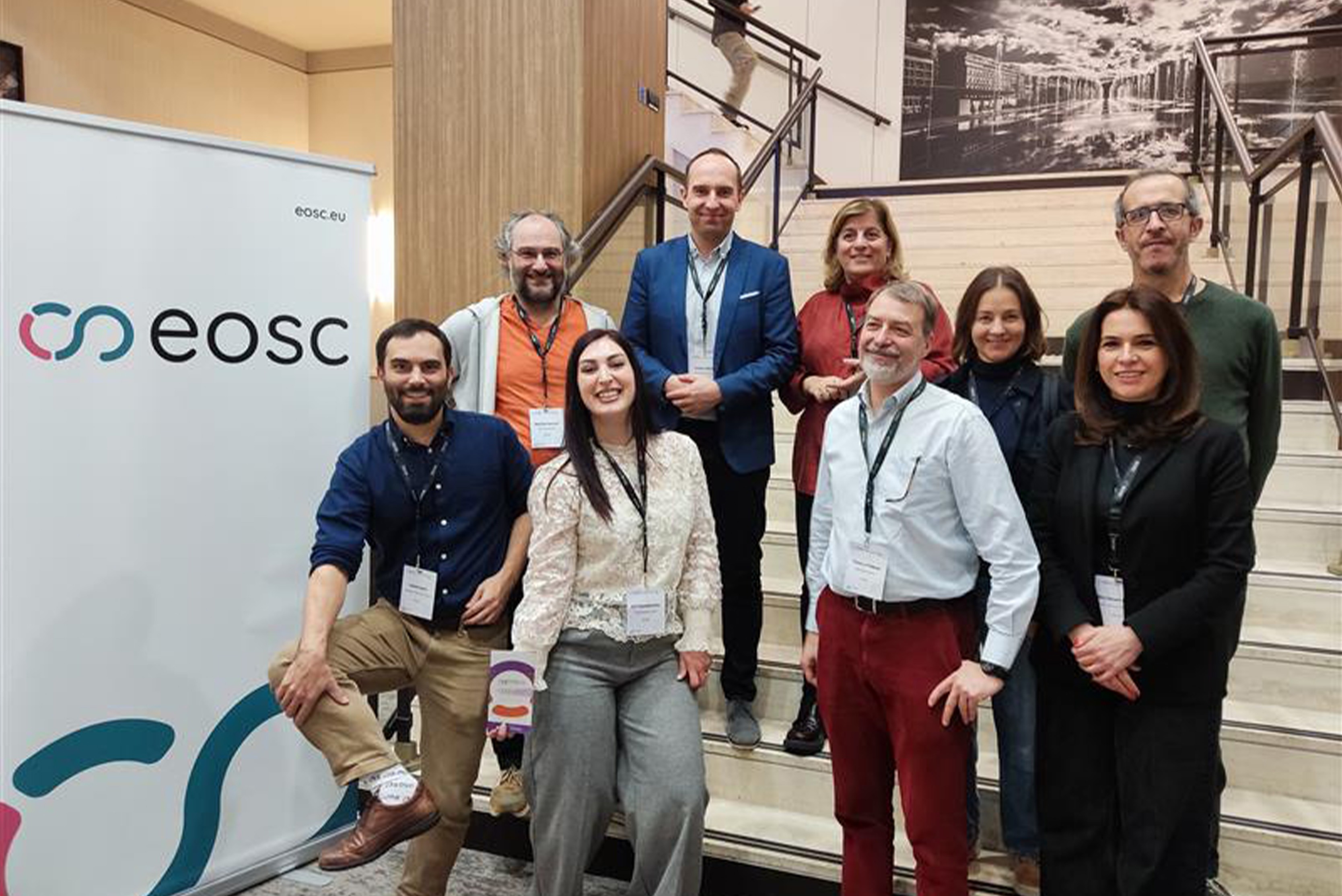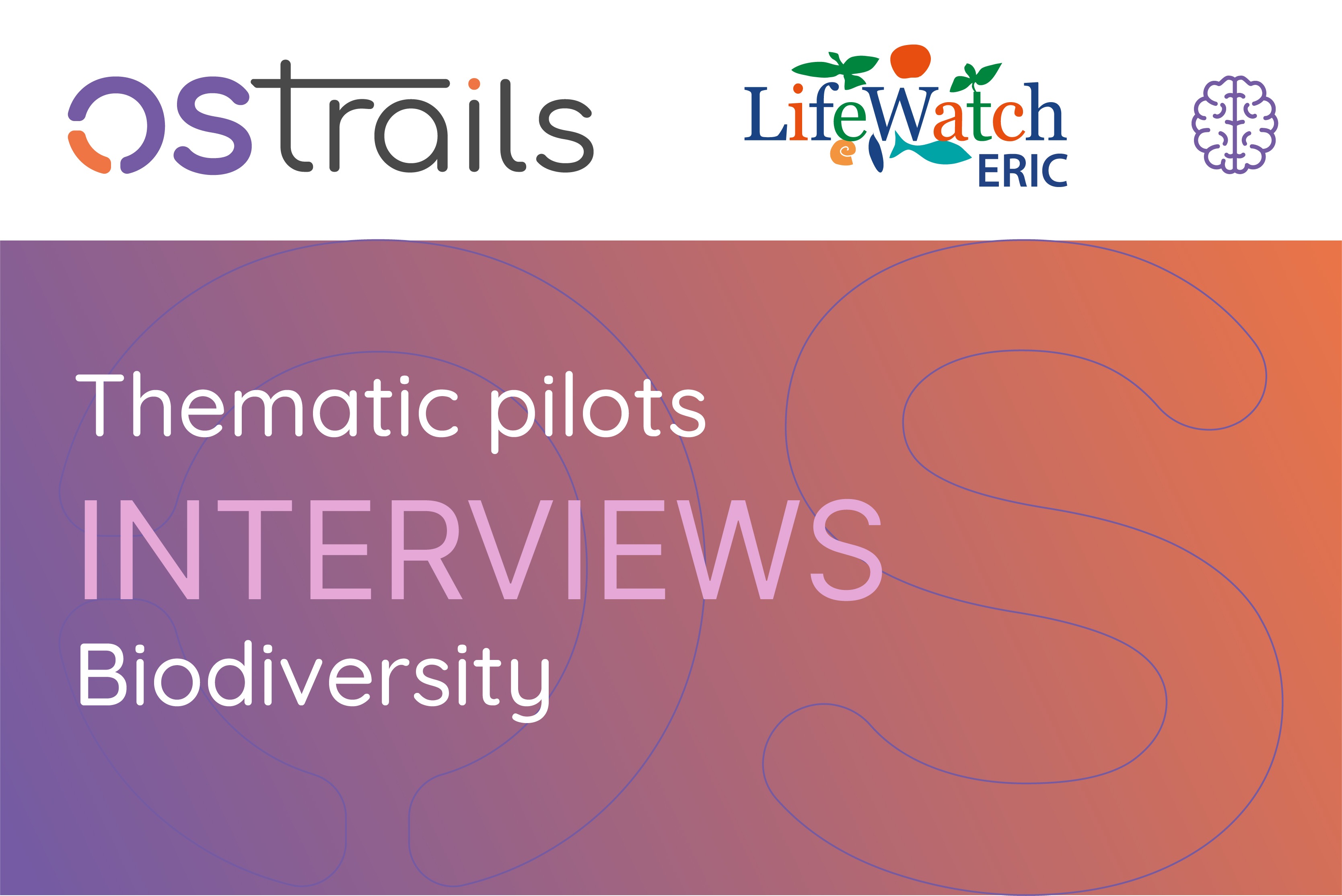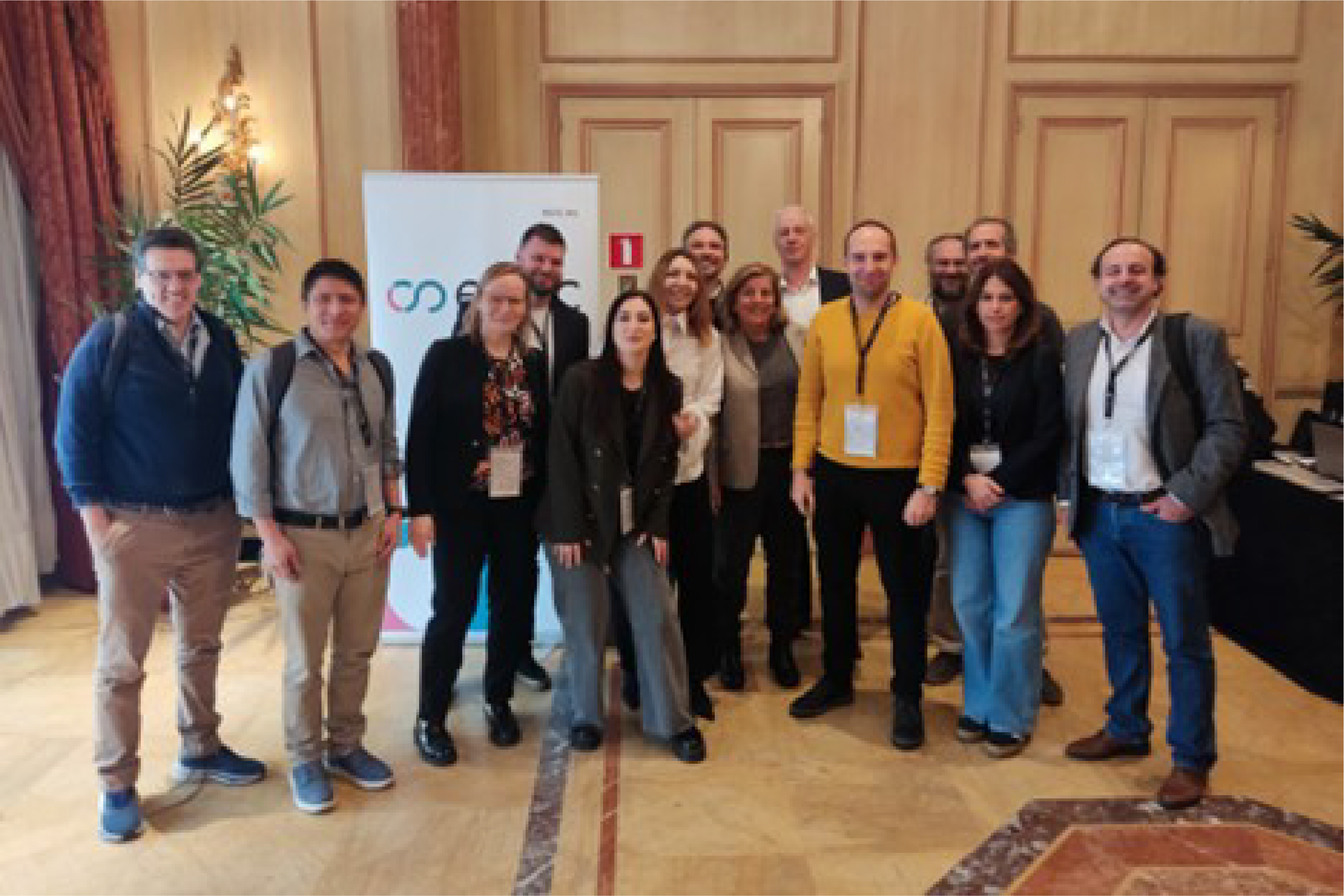Sharing our experience and preliminary results on interoperability with the EOSC community in Berlin
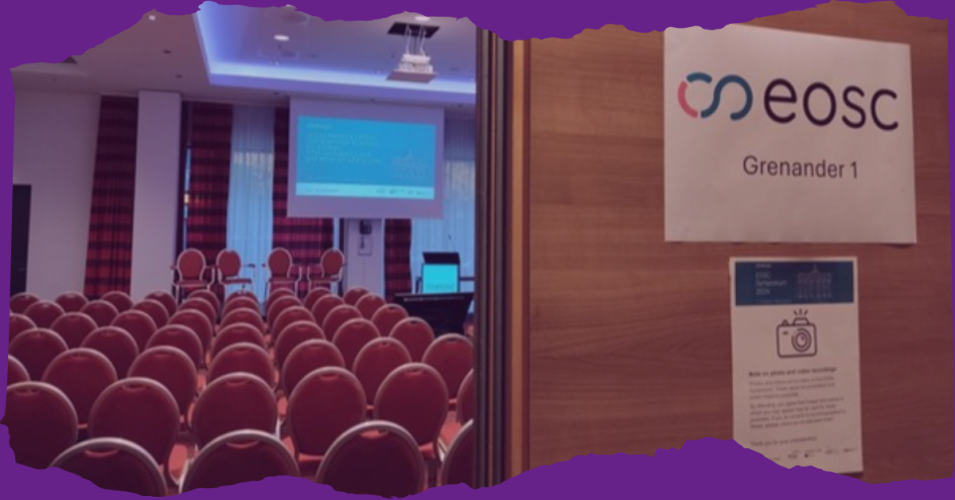
Launching the EOSC EU Node
The EOSC Symposium 2024 in Berlin marked the launch of the EOSC EU Node which serves as the first step towards the EOSC federation. Held in hybrid mode, it brought together thousands of participants representing key stakeholders from across Europe to advance the Open Science infrastructure. Special attention was given to the FAIR principles' adoption particularly for their relevance to AI research applications that support the vision towards the “Web of FAIR data and services”.
Partners’ Contribution
OSTrails joined the event alongside other EOSC projects and initiatives, contributing to critical discussions on enhancing data interoperability and FAIR principles within the EOSC ecosystem. Active involvement included a presentation by Elli Papadopoulou, deputy coordinator, in the collaborative unconference session on the Scientific Knowledge Graph - Interoperability Framework (SKG-IF), and a poster presentation by Tomasz Miksa, technical manager, aimed at engaging the EOSC community and gathering feedback on ongoing work.
Highlights from the SKG-IF session
Elli’s presentation, titled "Steps towards FAIRness, Interconnectivity, and Machine Actionability Across All Research Phases," underscored OSTrails’ efforts to support Open Science practices through the SKG-IF framework. She illustrated how OSTrails applies FAIR principles to ensure that research data and metadata are interoperable and machine actionable. The talk emphasised OSTrails’ contribution to the SKG-IF with more entities that can be then further exploited for assessment, such as services/instruments used to generate data in research infrastructures and costs for Research Data Management available in DMPs.
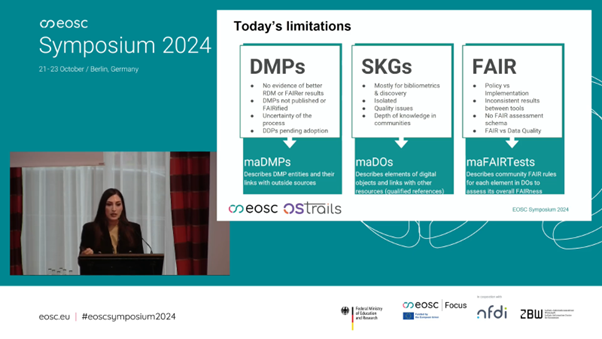 Elli Papadopoulou presenting at the Unconference Session.
Elli Papadopoulou presenting at the Unconference Session.
Discussion
Key questions posed during the Q&A session provided the opportunity to clarify several aspects and yielded constructive comments from participants. Among them was the definition of “digital objects” used in the context of OSTrails which is not equivalent to FDOs.
“Digital Objects can be broadly defined as “a sequence of bits identified by a persistent identifier and described by metadata” (D1.1: Plan-Track-Assess Pathways, after: Berg-Cross et al. 2015; Schwardmann 2020; De Smedt et al. 2020)”.
Overall, the discussion focused on the necessity of the SKG-IF—whether existing standards like Dublin Core, DataCite, or Scholix suffice for interoperability—and called for clarity on ownership, given multiple projects involved. It is important to cover various research outputs, not just publications, and ensuring it aligns with Semantic Web principles, using ontologies and schemas like DCAT or PROV. Compliance with EU regulations, especially under EOSC's "Data Space," is equally essential, as is SKG-IF’s support for Open Science goals through harmonised APIs and efficient federated data search, enabling cross-European collaboration.
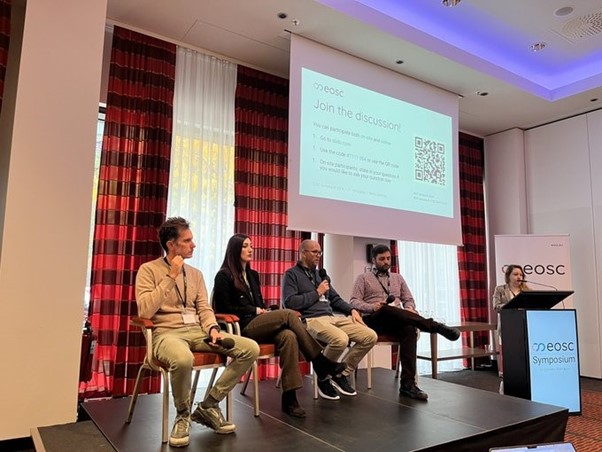 Post-Unconference Session Discussion.
Post-Unconference Session Discussion.
Community Discussions that Broaden Collaborations
During lunch breaks, Tomasz presented the project’s poster showcasing current developments with the SKG, FAIR and DMP Interoperability Frameworks and the pathways supporting their implementation. This informal setting provided a great opportunity to interact with a diverse audience and explain the complexity of the project in simple terms. Conversations with participants highlighted the key contributions of the project, particularly the role of commons in fostering collaboration and resource sharing within the broader EOSC community. They also spurred connections with service providers outside OSTrails who were welcome to participate in future events of the project aiming at harmonisation for wider adoption of our results.
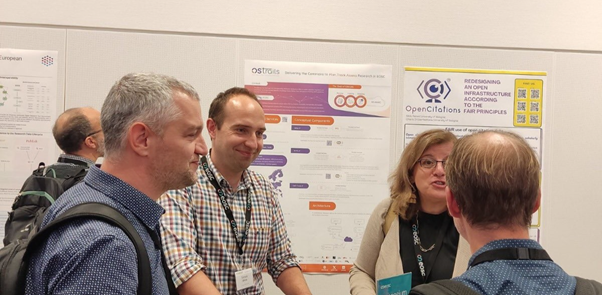 Engaging Conversations on Project Developments with Tomasz.
Engaging Conversations on Project Developments with Tomasz.
Link to the presentation: Papadopoulou_Steps-towards-FAIRness-interconnectivity-a.pdf
Unconference session slides: EOSC collaborative frontiers to achieve interoperability and enhance scholarly data
Unconference session recording: EOSC Symposium | Unconference | EOSC collaborative frontiers to achieve interoperability and ...
Link to the poster: OSTrails: Delivering the Commons to Plan - Track - Assess research in EOSC

